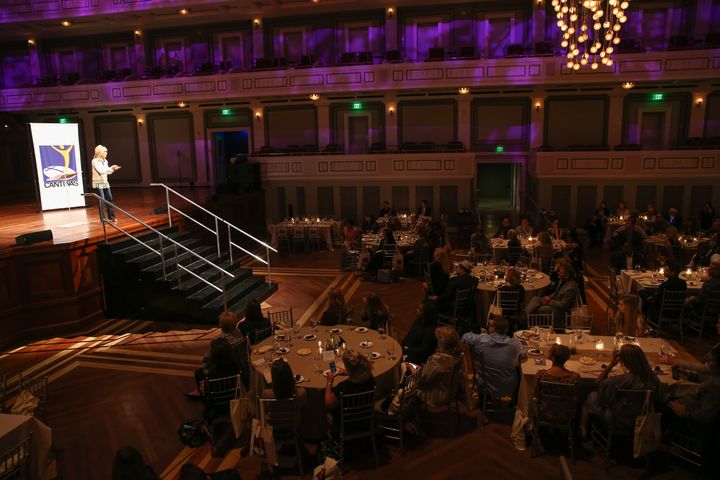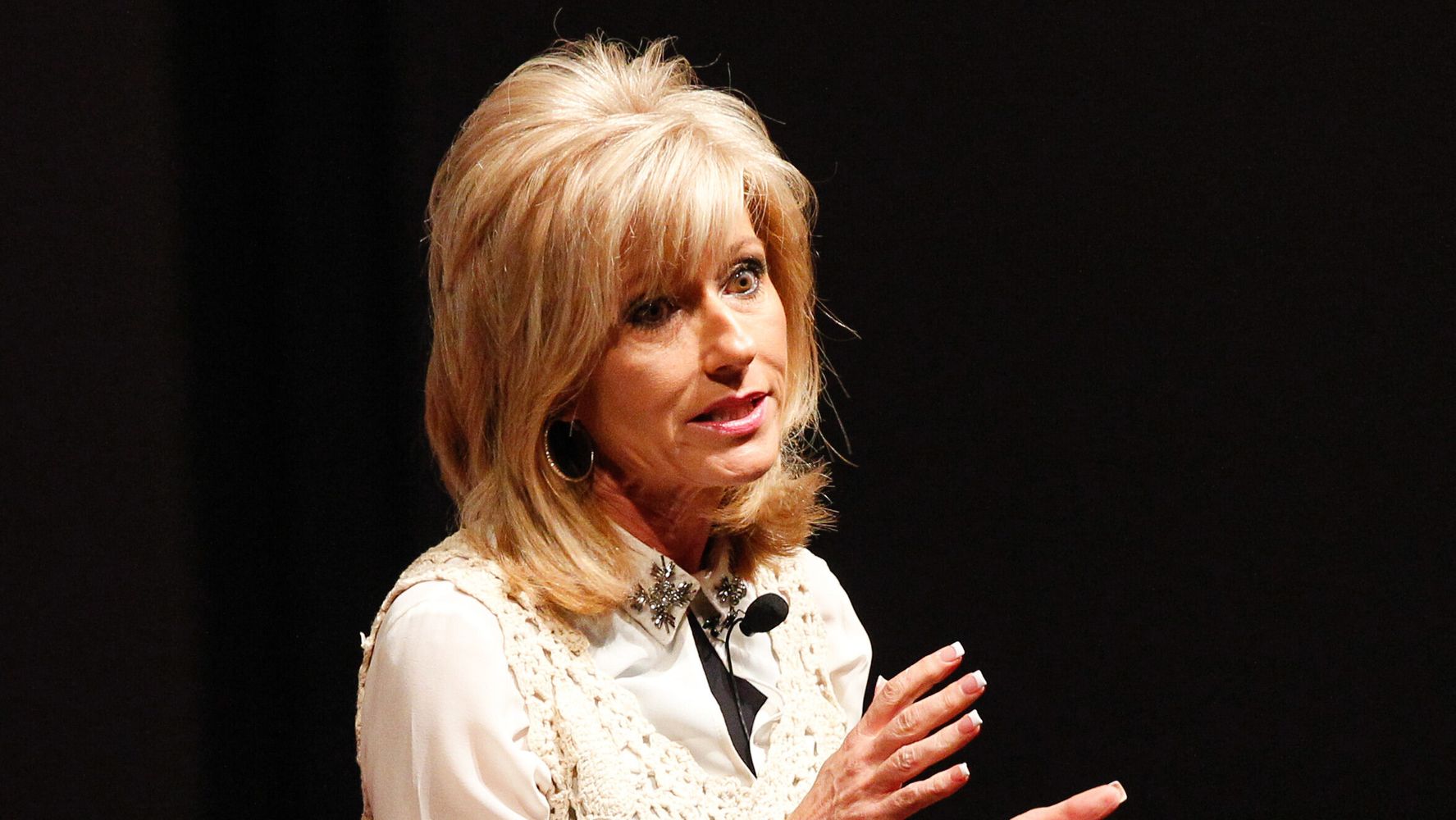[ad_1]
Faced with increasingly heated vitriol from men who think women should keep silent in church, a popular evangelical Christian writer is digging in and affirming her calling as an evangelist.
Beth Moore has been criticized for teaching in front of mixed-gender audiences ― pushing the boundaries of what’s acceptable in her conservative denomination, the Southern Baptist Convention.
Most recently, Moore has been the target of fiery criticism from John MacArthur, an 80-year-old evangelical leader from California who insists that it is against God’s plan for a woman to preach ― or even utter a single word ― at church.
In mid-October, when MacArthur was asked what he thought of Moore, he responded with the phrase, “Go home.” MacArthur expanded on his feelings in an explicitly misogynistic diatribe against women preachers during a sermon at his nondenominational church last week.
The pastor, whose Bible commentaries have influenced generations of conservative evangelicals, used Scripture to reinforce the idea that female preachers are “sordid, disgraceful, [and] shameful” and that women in general are vulnerable and susceptible to deception. Women can teach other women, MacArthur said, but the Bible mandates that women must control their desires to exert any power over men. When women assume positions of authority, chaos and destruction will inevitably follow in the church and in society at large, he claimed.
“Empowering women makes weak men. Weak men make everybody vulnerable to danger,” MacArthur said during a sermon published on YouTube on Nov. 8.
“When you overthrow the divine order, the results are always disastrous,” he added. “It’s a divine judgment on a nation that its young and its women are in power.”
In the midst of this fervid attack on women’s calling to preach, Moore succinctly pointed out that Jesus himself used women to spread the gospel.
On Twitter, Moore referred to a Bible passage in John 4, in which Jesus speaks to a woman getting water at a well. According to the passage, Jesus reveals to this woman that he is the Messiah. She is so persuaded by this message that she runs back to her village, shares the news and convinces the villagers to come meet him, which results in many more conversions.
Reflecting on that passage and on other stories about the roles of women in Christian Scriptures, Moore called it “insanity” that “anyone could sell the idea that Jesus no longer uses women in spreading the gospel.”
Moore declined to give HuffPost any further comment or clarification about her tweets.
Moore’s tweets are an illustration of how conservative evangelical women have carefully and creatively negotiated space for themselves within a religious tradition that blocks them from accessing the pulpit.
Several Christian denominations, including some evangelical denominations, already support the ordination of women. The Southern Baptist Convention does not.
Moore considers herself a complementarian ― meaning she believes that the Bible assigns men and women different roles and responsibilities, and that men ultimately have spiritual authority over women. Her ministry focuses on women, and she’s careful to say she has no desire to become a pastor.
But with the rise of social media, Moore has been able to carve out a prominent platform. She has thousands of more followers online than some of the leading male figures in the SBC.
And since the 2016 presidential campaign, she’s become increasingly vocal about the misogyny and white nationalism she’s seen in white evangelical circles.

Although they often faced opposition, women have taught and preached throughout the history of American evangelicalism, according to Kristin Kobes Du Mez, a history professor at Calvin University who is writing a book about white evangelical masculinity. But the stakes were raised in the 1970s, Du Mez said, when conservative white evangelicals felt increasingly marginalized by the feminist and civil rights movements. During this time, they positioned conservative views about gender and sexual purity at the heart of Christian orthodoxy and denounced alternative interpretations as heretical or unbiblical, she said.
“They sought to take control of institutions and denominations —and, if at all possible, to gain influence over the culture at large,” Du Mez said.
Moore’s rising popularity is alarming to these leaders because she is a “powerful and beloved” teacher who is “threatening to undo these efforts, the very basis of their religious identity and authority.”
“She was long deemed acceptable largely because her ministry focused on women, and she didn’t directly challenge the authority of male leaders,” Du Mez said. “Thanks to social media, however, her following now extends far beyond the women who read her Bible studies, and for that reason she’s become more dangerous, and she’s drawing more fire.”
“Thus far she’s walked the line very carefully, even winsomely, but it is a very fine line.”
REAL LIFE. REAL NEWS. REAL VOICES.
Help us tell more of the stories that matter from voices that too often remain unheard.
[ad_2]
Source link

